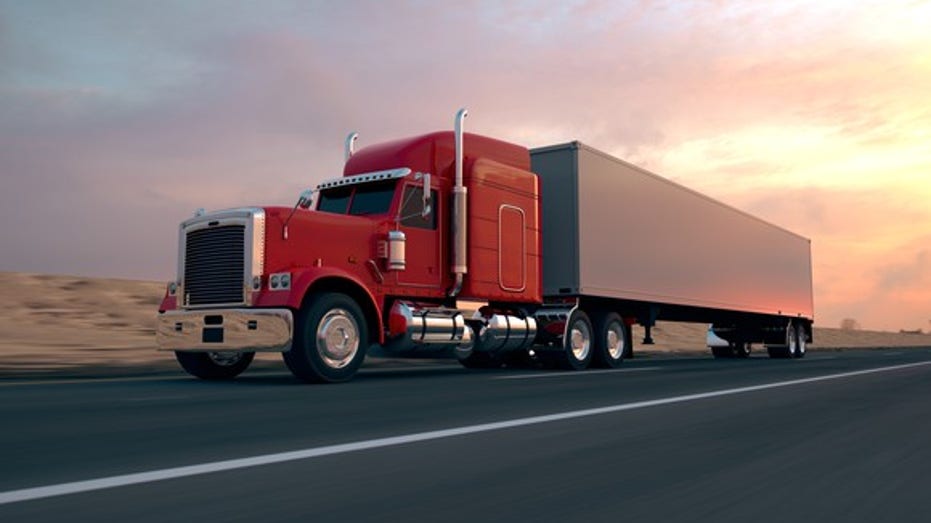Struggling trucking industry must comply with new logging rule beginning Tuesday
Regulation requires truckers to use certain devices to electronically log their time on the road.
A new regulation requiring truckers to use certain devices to electronically log their time on the road hits the industry Tuesday.
The Commercial Vehicle Safety Alliance said it will begin enforcing the Federal Motor Carrier Safety Administration rule that requires truckers to use electronic logging devices to track and report their hours on the road. The devices must connect to the truck's engine to record when the vehicle is in motion.
The rule was aimed at keeping truckers safe by preventing them from driving more than 11 hours or working more than 14 hours per day.
But some truckers say the new mandate will impact their salaries as well as job safety, turning what was supposed to be a safety measure into an added pressure for truckers to "beat the clock."
TRUCKING COMPANIES FAILING AT NEARLY TRIPLE THE RATE OF 2018

"Drivers are now more reckless than ever trying to make it to their destination before the clock runs out with the mandatory breaks and such," trucker Steve Manley, 52, told Business Insider.
The most popular electronic logging device (ELD) costs $495 per truck, according to ELD maker Omnitracs.
WHY MORE WOMEN ARE TAKING TRUCKING JOBS
The ELD mandate comes at a time when trucking companies are failing at nearly triple the rate of 2018.
Last year, 310 trucking companies failed, removing 2,805 trucks from the road, which was actually a "historically record-low rate for trucking company failures," according to Donald Broughton, principal and managing partner of data firm Broughton Capital.
This year, 795 companies have failed, with almost 24,000 trucks removed from the nation’s capacity.
Meanwhile, the Celadon Group, which is the largest provider of international truckload services in North America, became the most recent trucking company to close operations upon filing for bankruptcy earlier this month.
In addition to Celadon Group, other big companies that went under include New England Motor Freight, which employed more than 1,400 drivers, as well as HVH Transportation, Falcon Transport and LME.




















